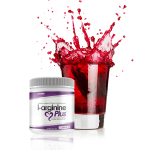A better cardiovascular system improves free diving training.
Enhanced cardiovascular health is the key for better free diving performance Yes, having a better cardiovascular system can indeed improve free diving training and performance. Free diving is a challenging sport requiring individuals to hold their breath and dive underwater. During free diving, the body experiences various physiological changes, and having a well-trained cardiovascular system can positively impact these aspects.
Increased Breath-Holding Ability:
Free divers rely on their ability to hold their breath for extended periods. A well-trained cardiovascular system can help deliver oxygen more efficiently to the body’s tissues, allowing divers to tolerate higher carbon dioxide levels and delay the onset of breath-holding discomfort.
Improved Oxygen Utilization:
A robust cardiovascular system helps the body utilize oxygen more effectively, enhancing the oxygen-carrying capacity of the blood. This can delay the onset of hypoxia (oxygen deficiency) during dives, allowing free divers to stay submerged for more extended periods.
Faster Recovery:
After a deep dive, the body experiences increased carbon dioxide levels and lactic acid buildup, leading to fatigue. A well-conditioned cardiovascular system aids in the removal of waste products and promotes faster recovery between dives.
Reduced Risk of Blackouts and Shallow-Water Blackouts:
Blackouts and shallow-water blackouts can occur due to low oxygen levels in the brain. A well-trained cardiovascular system can help maintain adequate oxygenation in the brain, reducing the risk of these potentially dangerous situations.
Enhanced Overall Endurance:
Free diving requires considerable physical and mental endurance. A stronger cardiovascular system improves overall stamina, allowing free divers to perform multiple dives with reduced fatigue.
To improve cardiovascular fitness for free diving, individuals can engage in regular aerobic exercises like running, swimming, cycling, or any other activity that raises the heart rate for an extended period. High-intensity interval training (HIIT) can also be beneficial, as it simulates the intense efforts and rest periods experienced during dives. Combining cardiovascular training with specific free diving techniques, safety protocols, and proper breath-holding exercises is essential for the best results. Additionally, always practice free diving with a trained buddy and adhere to safety guidelines to ensure a safe and enjoyable experience.
 If you are interested in this topic go learn how L-arginine can help your cardiovascular goals.
If you are interested in this topic go learn how L-arginine can help your cardiovascular goals.

